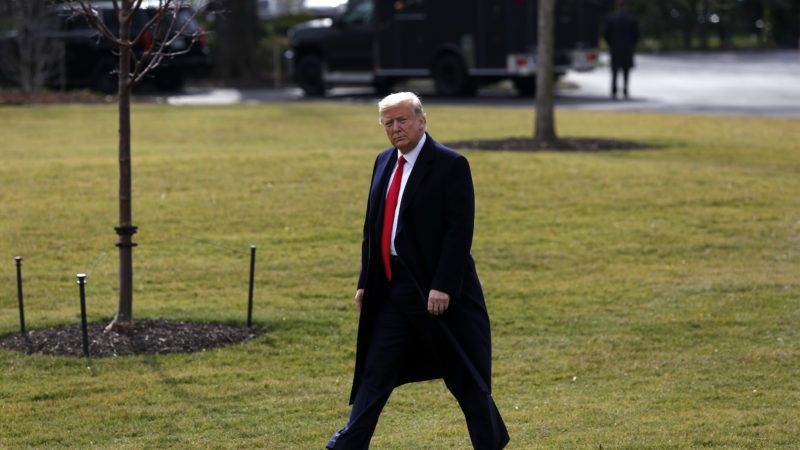Democrats Say Trump Is Responsible for Ukrainian Deaths. They're Wrong.
Impeachment managers in Trump's Senate trial have overplayed their hand by claiming that Ukrainians perished because he blocked aid from the country.

"Where were you on July 25th?" Rep. Jason Crow (D–Colo.) asked during Democrats' opening arguments in President Donald Trump's Senate trial. That's the day that Trump, having held up congressionally authorized military assistance to Ukraine, made his notorious phone call asking Ukrainian President Volodymyr Zelenskiy for a "favor"—to have the foreign leader announce probes into Trump's political rivals. Also on July 25, impeachment manager Crow said, thousands of Ukrainians were risking life and limb in the fight against Russian aggression.
The natural conclusion, Crow claimed, is that Trump's decision to withhold aid cost lives. Thirteen Ukrainians died during the lapse in aid. Crow highlighted the fate of one in particular: Oleksander Markiv, who perished in battle in September.
Other impeachment managers echoed this critique several times over the course of the proceedings. But the idea gives the U.S. far too much credit for the security of Ukraine. It also undermines the case for impeachment, which rests comfortably on claims of corruption but buckles under apocalyptic anxieties around national security.
The U.S. routed $391 million in military aid to Ukraine in September. Of that figure, only $250 million was originally allotted from the Department of Defense; the other $141 million came from the State Department after the scandal broke in September. Such funds are generally intended to help Ukraine buy U.S. weapons, pay for some U.S. advisers to train their forces, and send officers to service academies in the United States. Emma Ashford, a research fellow at the Cato Institute, tells Reason that the assistance is intended "to reform the Ukrainian military in the long term," as opposed to aiding one-off skirmishes on the battlefield.
Congress had until September 30 to allot the funds and disburse them to Ukraine. While the country did not receive all of the money by then, delayed by the president's wheeling and dealing for political favors, that fact alone renders Crow's prime example moot. A death in September can hardly be blamed on Trump when, as it stands, he had the entire month to send the funds to Ukraine.
Several larger, more fundamental misconceptions are also at work here. Ashford mentions two. Foremost, there's the notion that military aid is akin to a water faucet, where "you turn it on and off like a tap [and] it makes a difference immediately" in combat. "That's just not the case at all," she says. Indeed, Laura Cooper, a Defense Department official, testified in November that the hole in aid did not correlate with a hole in military equipment in Ukraine.
The second problem, Ashford says, is "a lack of appreciation for the fact that this aid hasn't done a huge amount to improve the Ukrainian military." The most salient example of this might be the sale of Javelin anti-tank missiles to the country. The U.S. has stipulated that they must not be used in battle, rendering them purely symbolic.
Meanwhile, acting as though Trump's actions in Ukraine were so powerful as to facilitate these deaths exaggerates the importance of the money the U.S. has been sending, and it implies that Ukraine has long received such aid. But that's simply not true: The U.S. routed its first lethal military aid package to the country in 2018, under Trump, after former President Barack Obama demurred at the opportunity. "The fact is that Ukraine, which is a non-NATO country, is going to be vulnerable to military domination by Russia no matter what we do," Obama told The Atlantic's Jeffrey Goldberg in 2016.
The benefits of our security assistance are by no means certain. It would have been wiser still to focus on the facts: The president acted corruptly by attempting to pressure a foreign leader to help him secure his re-election. That's true whether or not the aid he temporarily withheld was doing any good.


Show Comments (132)